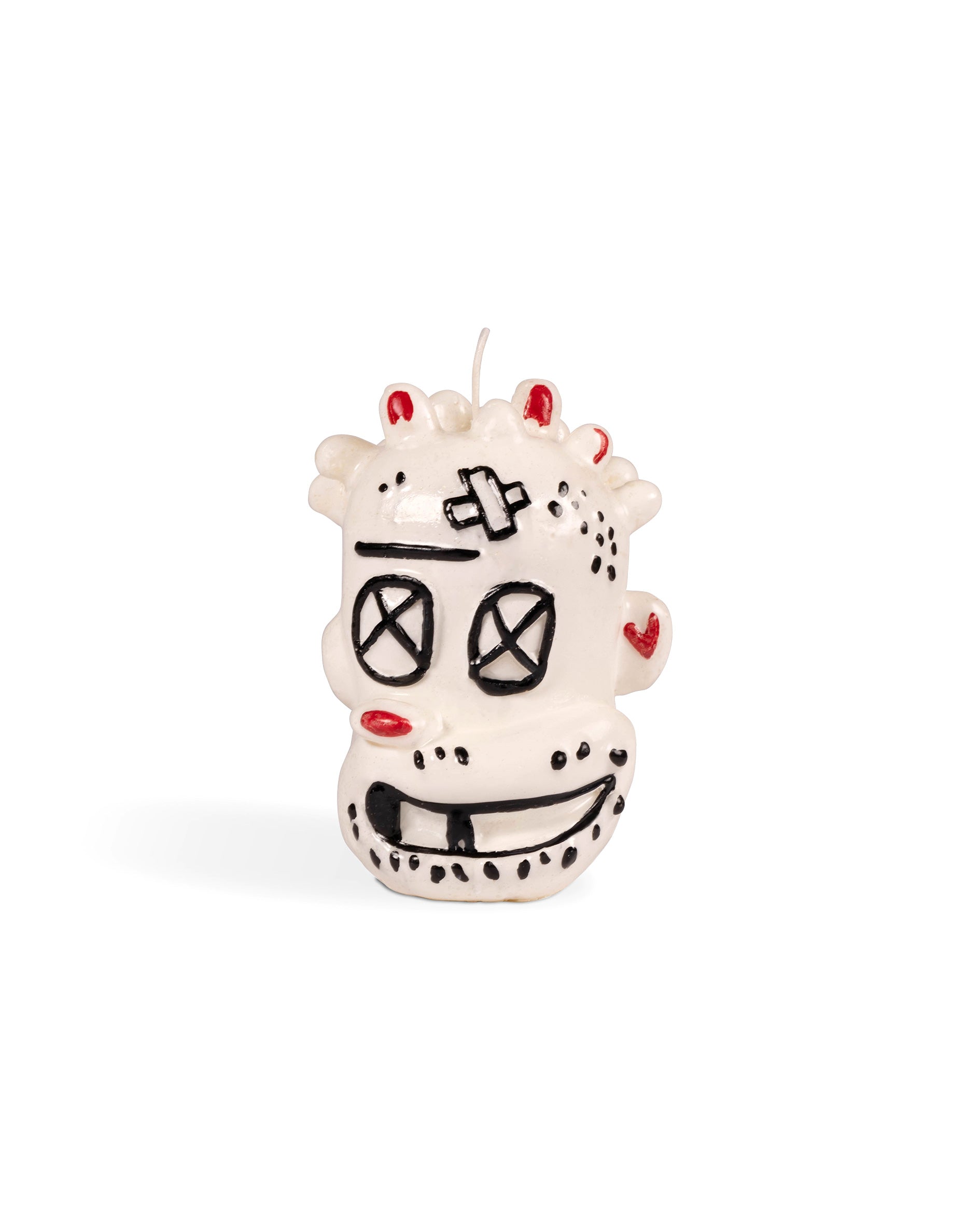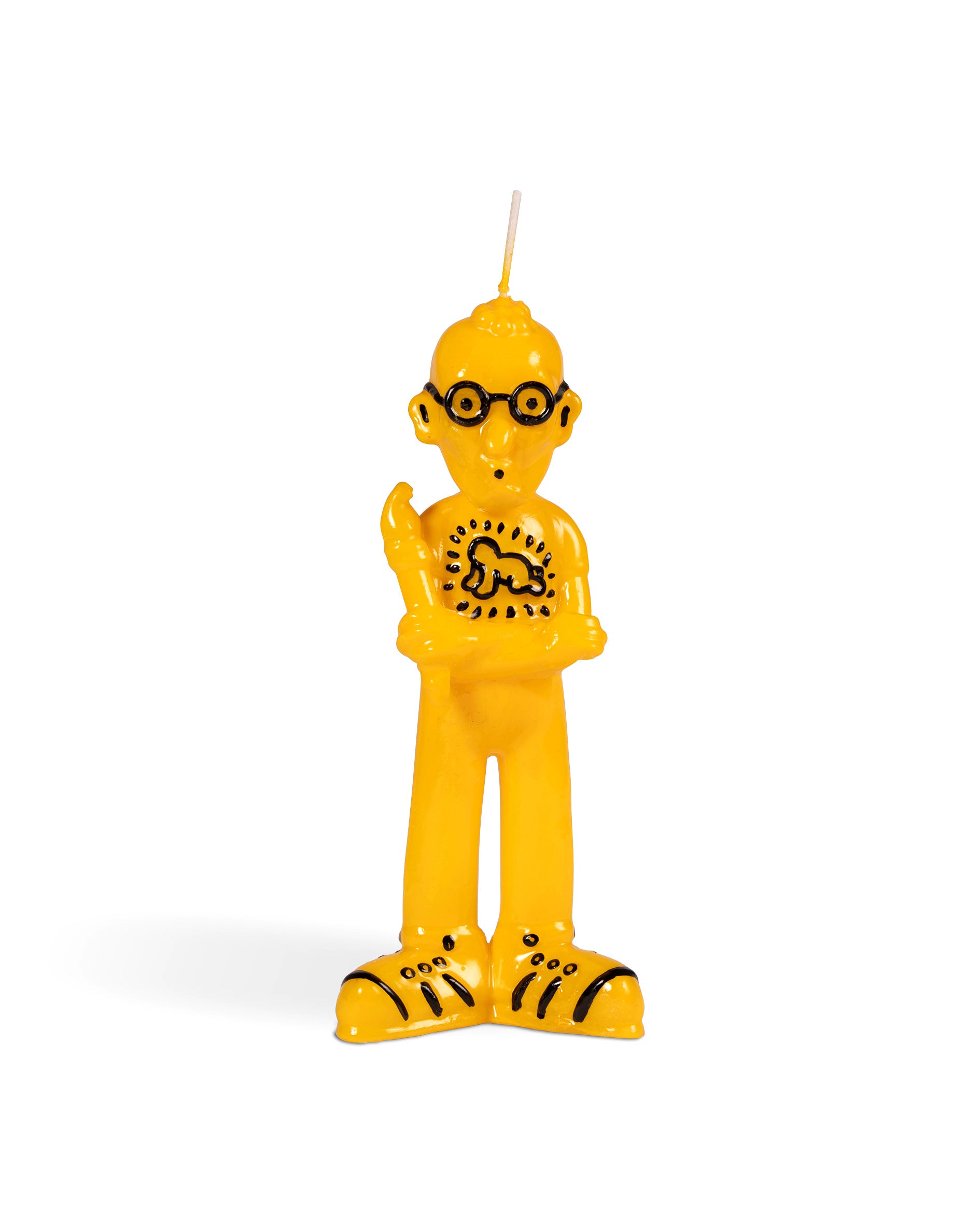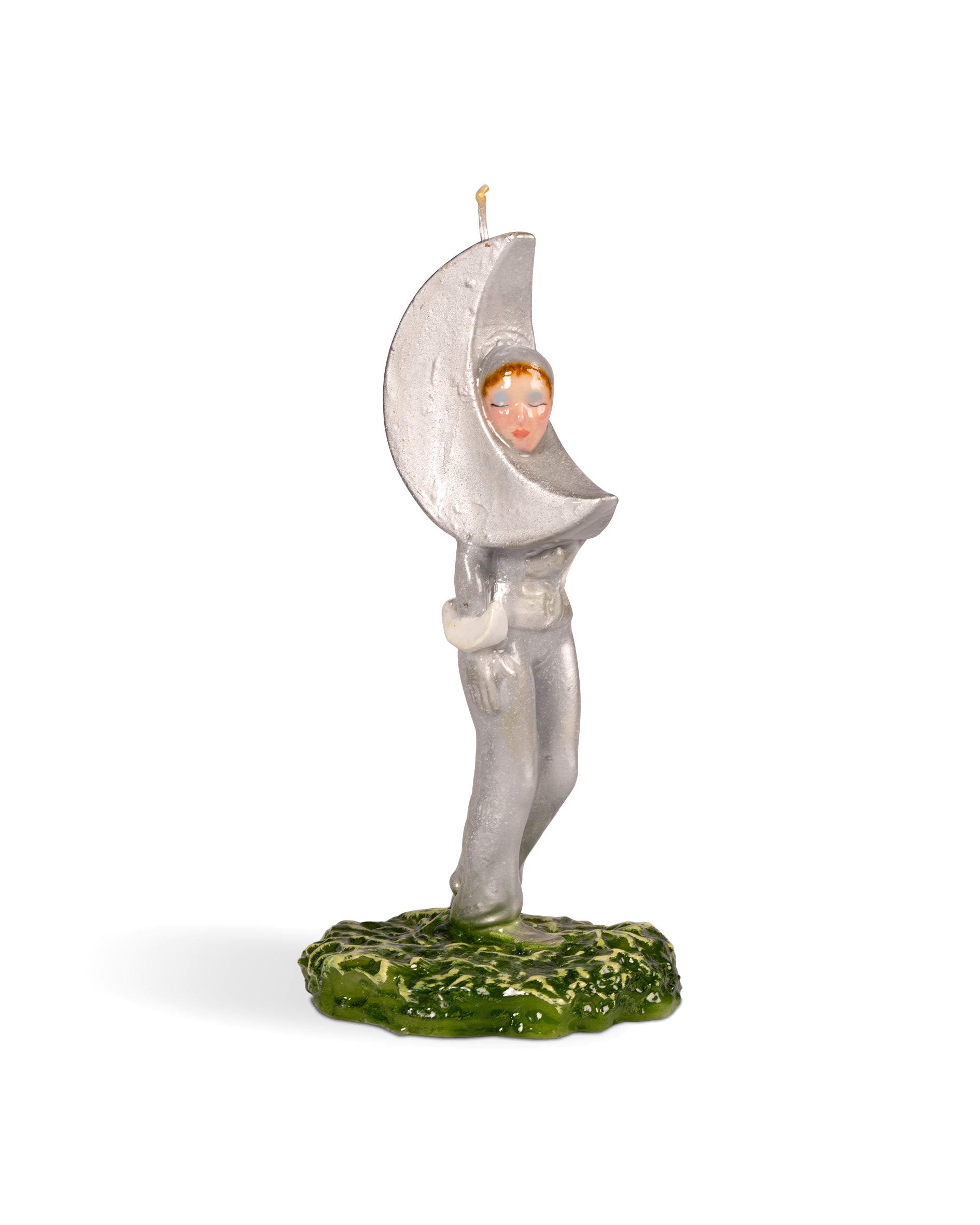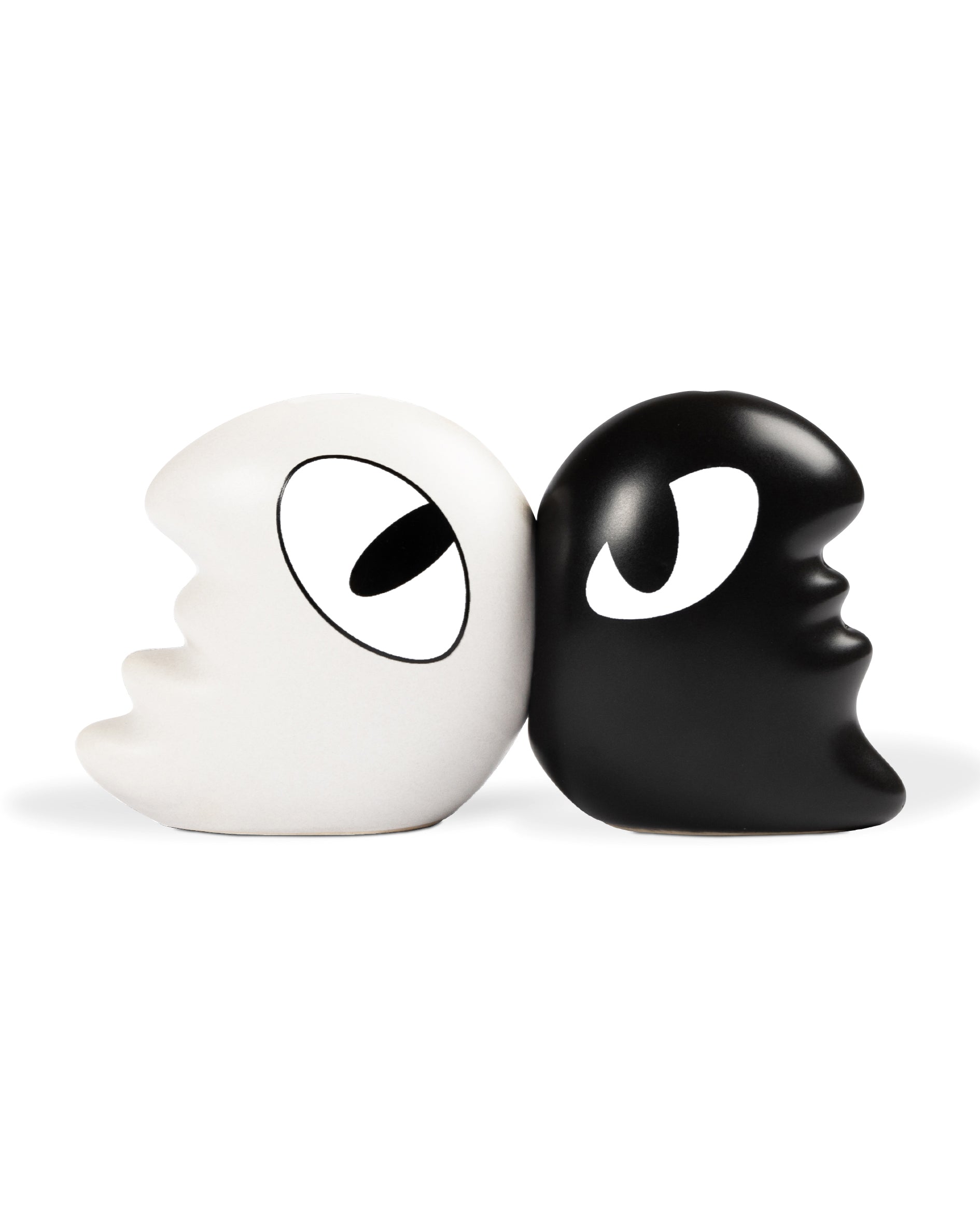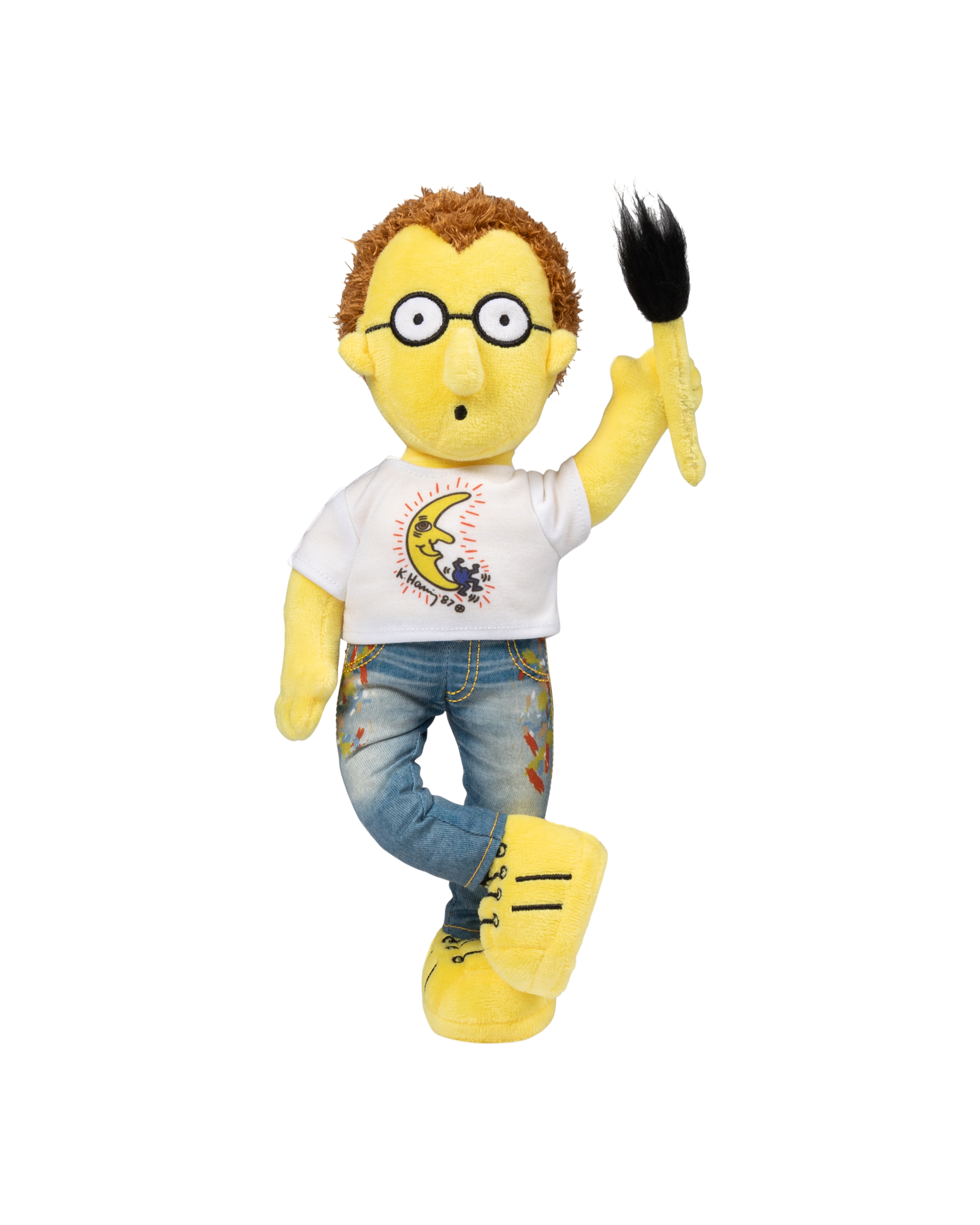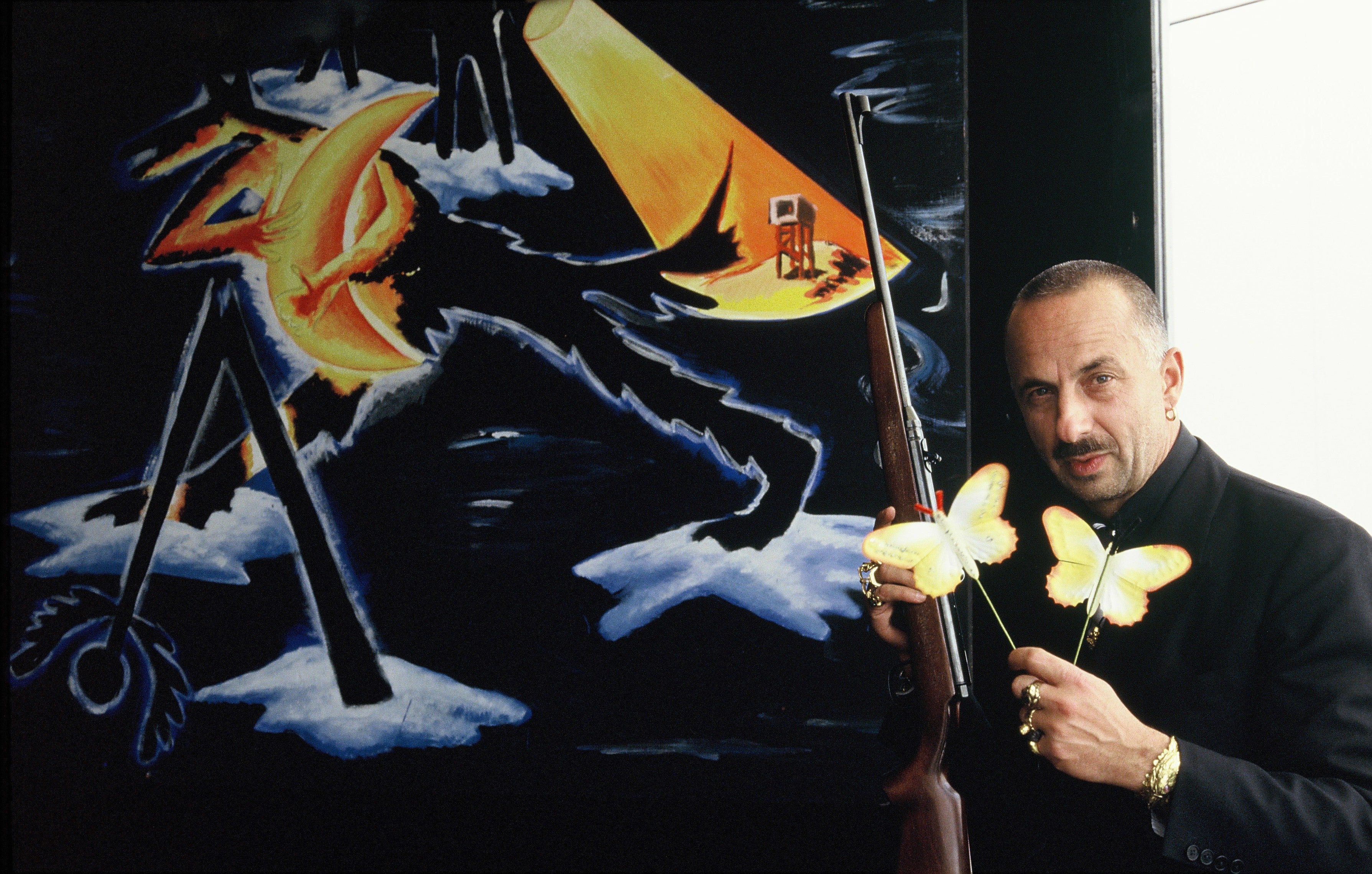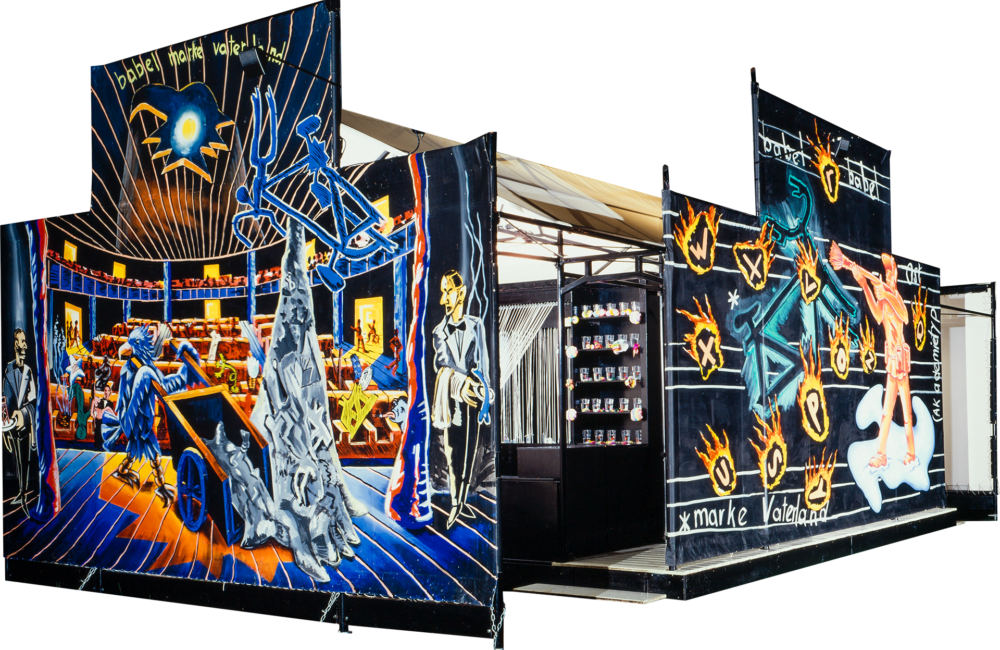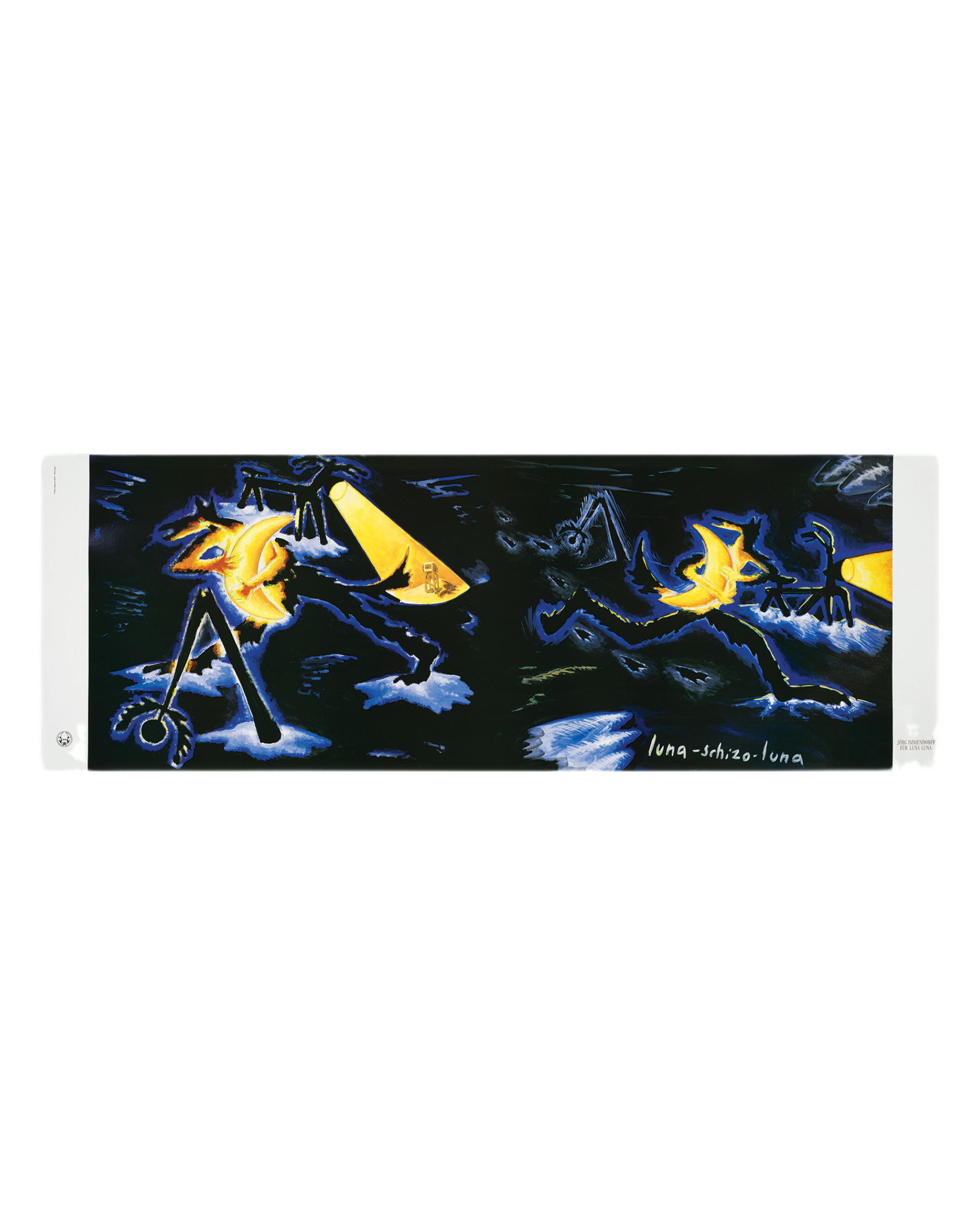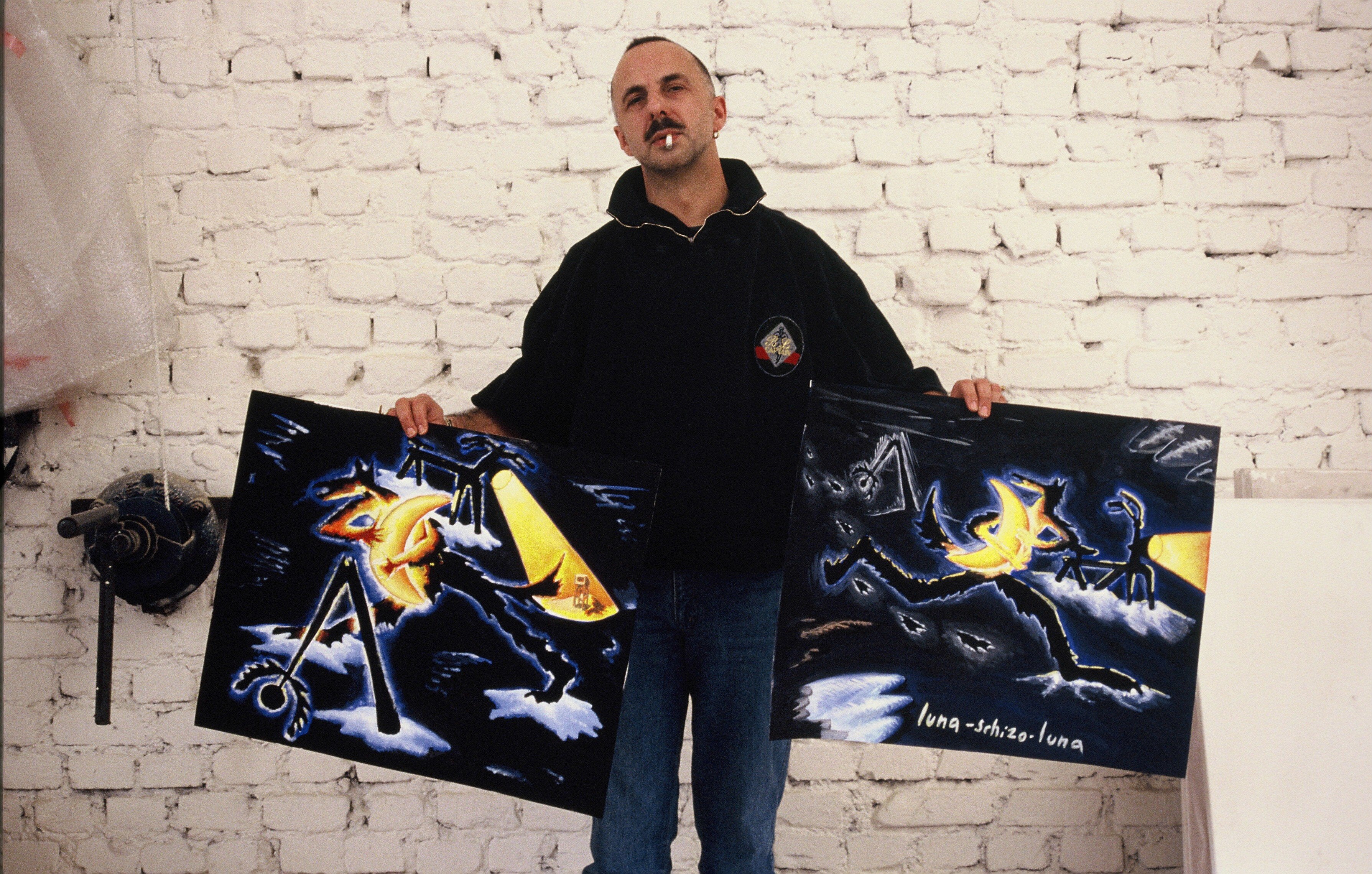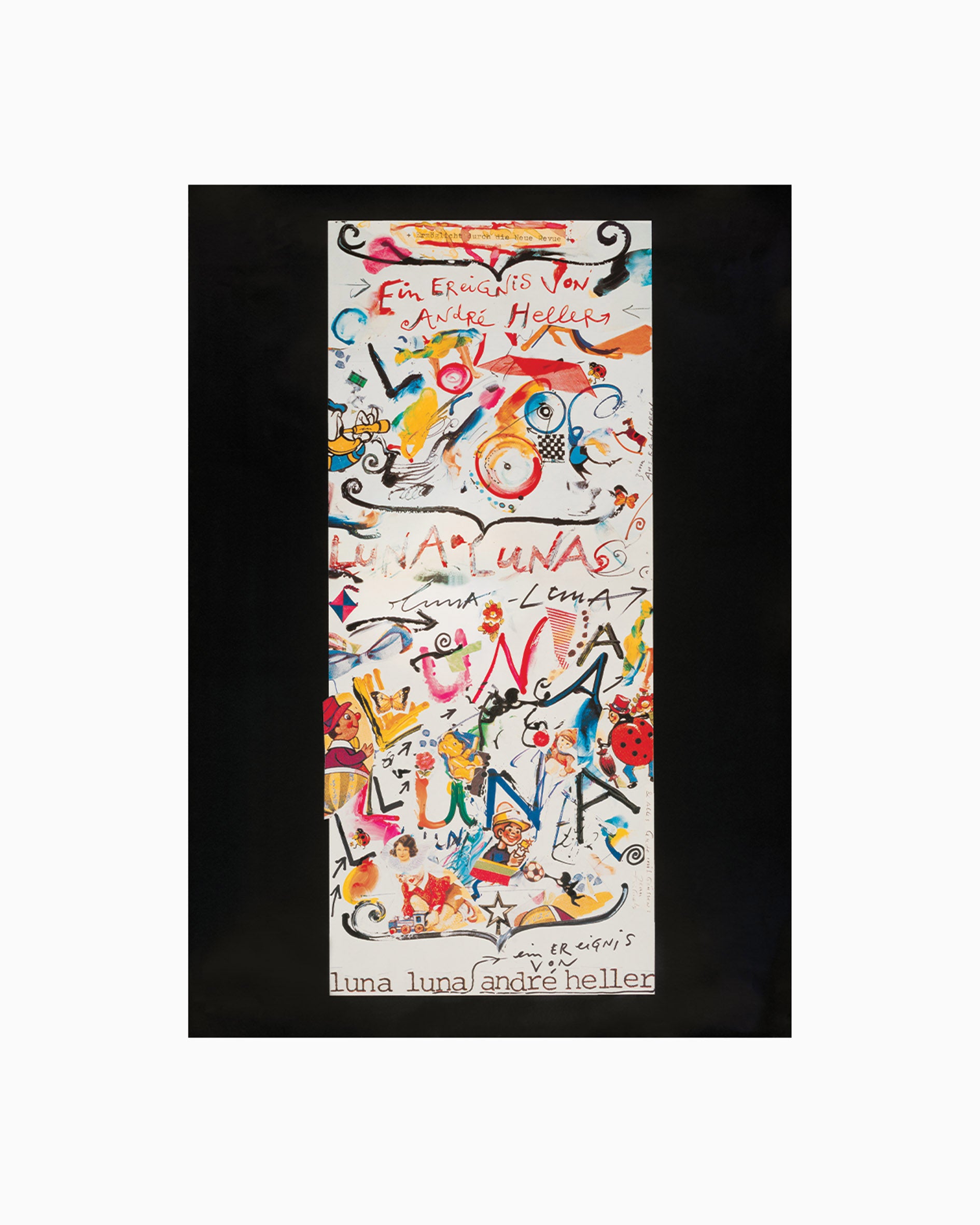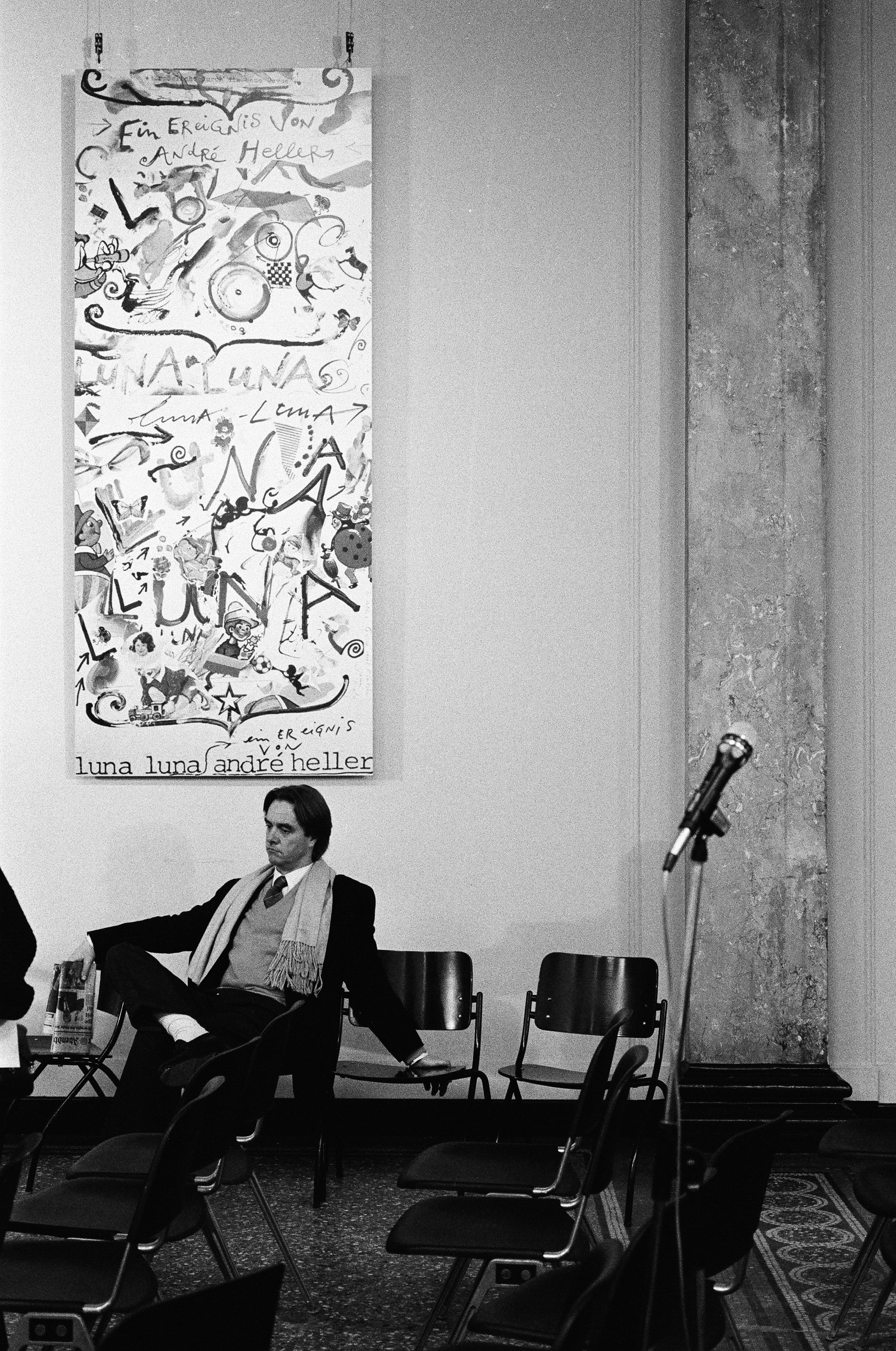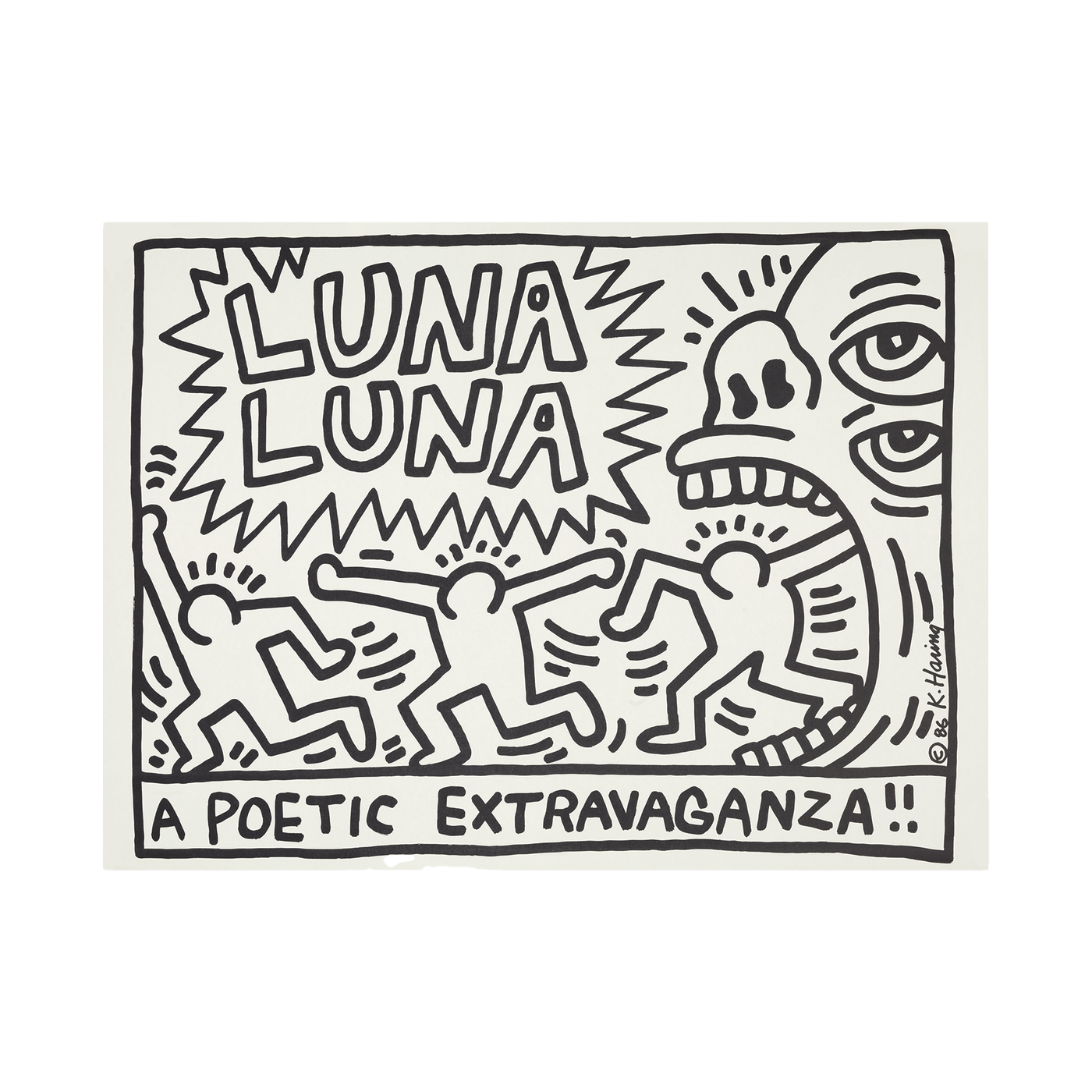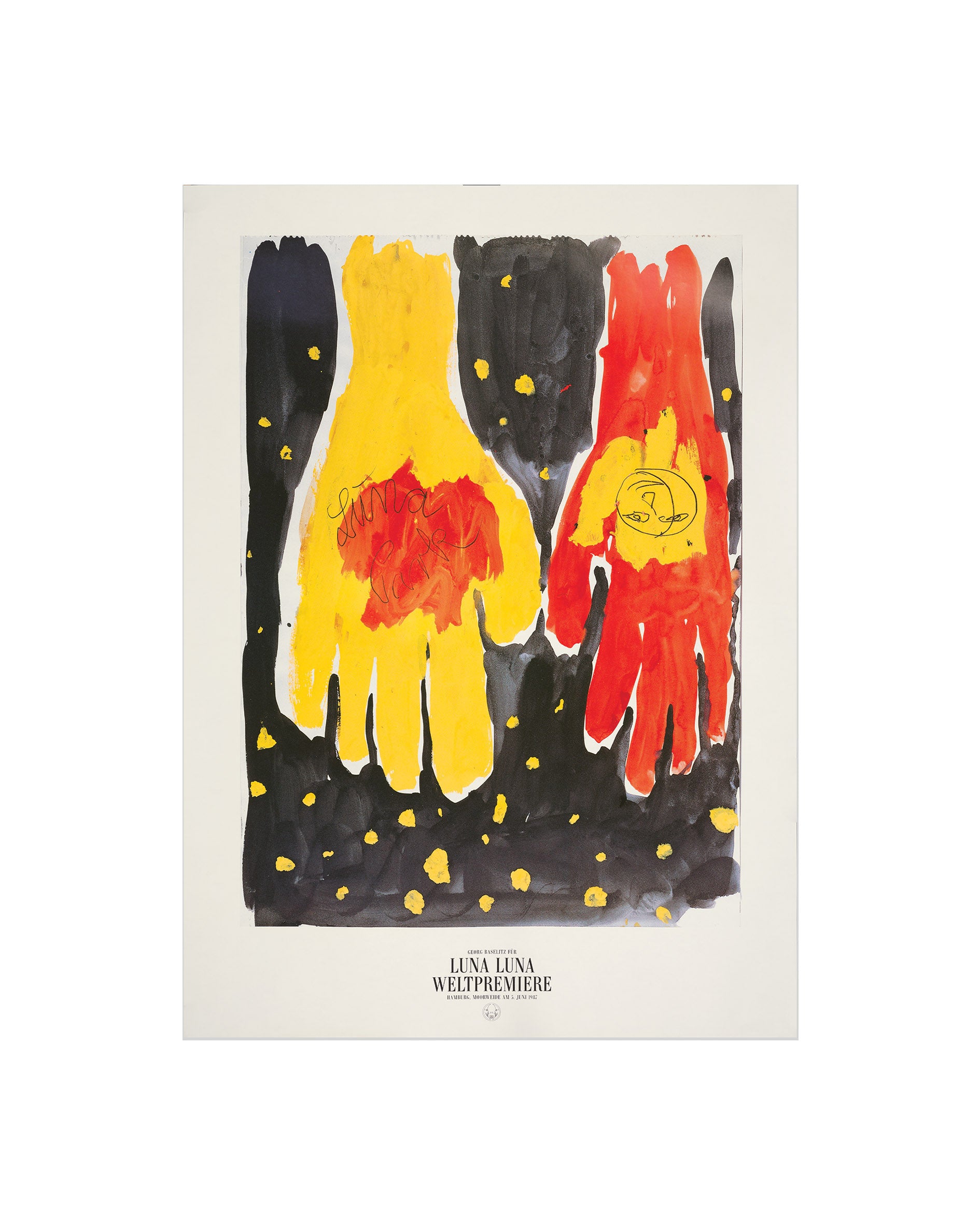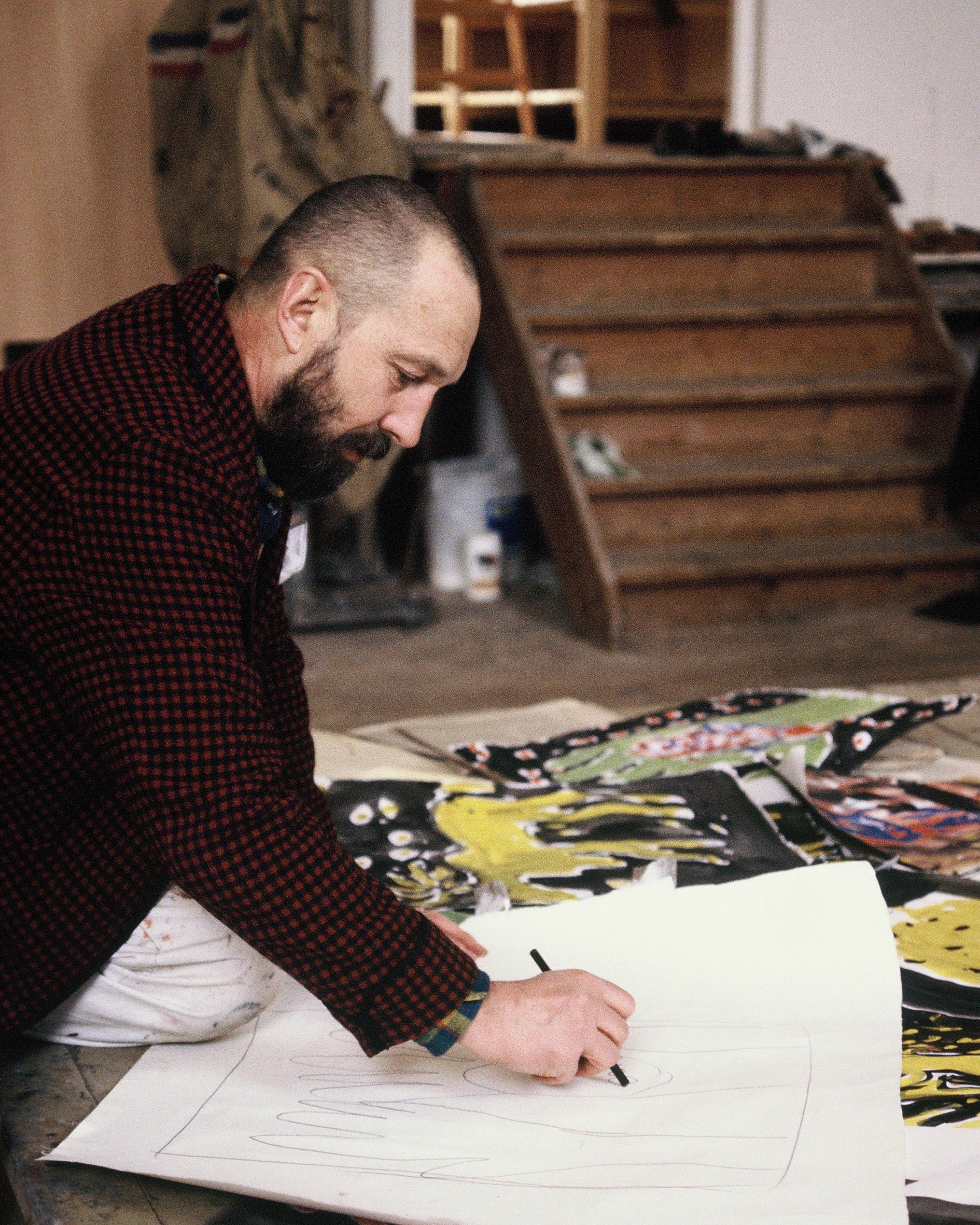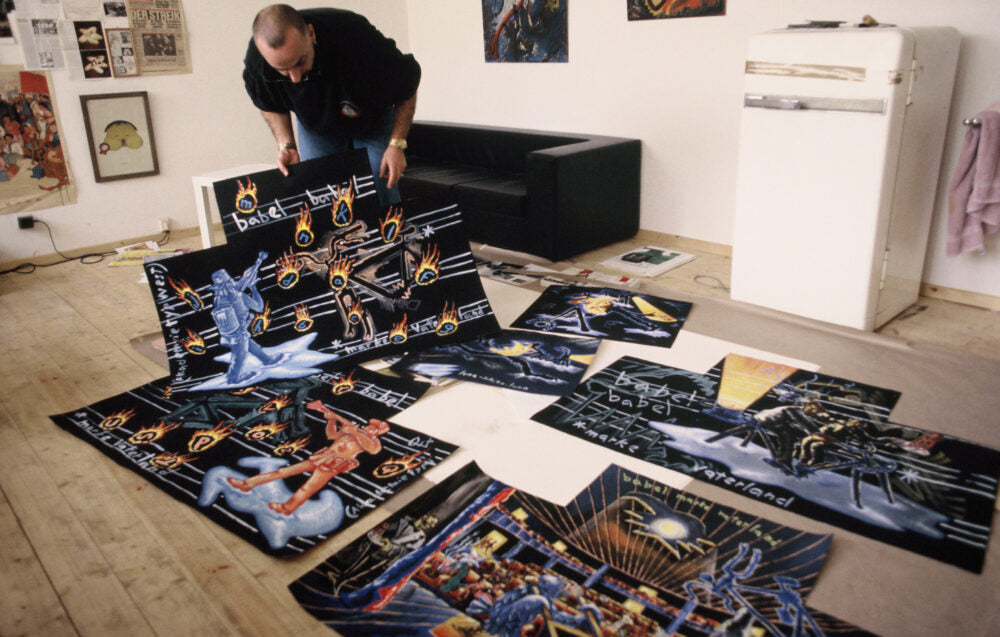
Jörg Immendorff, Shooting-gallery game with political imagery, exhibited 1987.
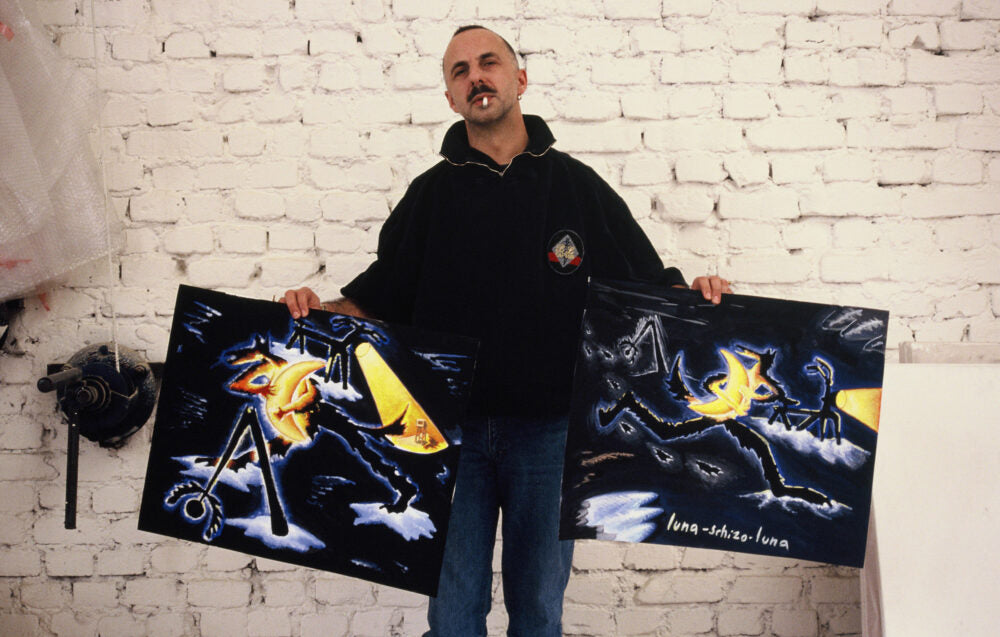
Jörg Immendorff, Shooting-gallery game with political imagery, exhibited 1987.
Jörg Immendorff created large-scale paintings with political imagery that explore the tensions of postwar Germany. After being expelled from the Düsseldorf Art Academy for his political organizing, in 1968 Immendorff founded the “LIDL Academy,” a creative space named after baby talk and the sound of a baby’s rattle, poking fun at institutional elitism and the notion of artistic genius.
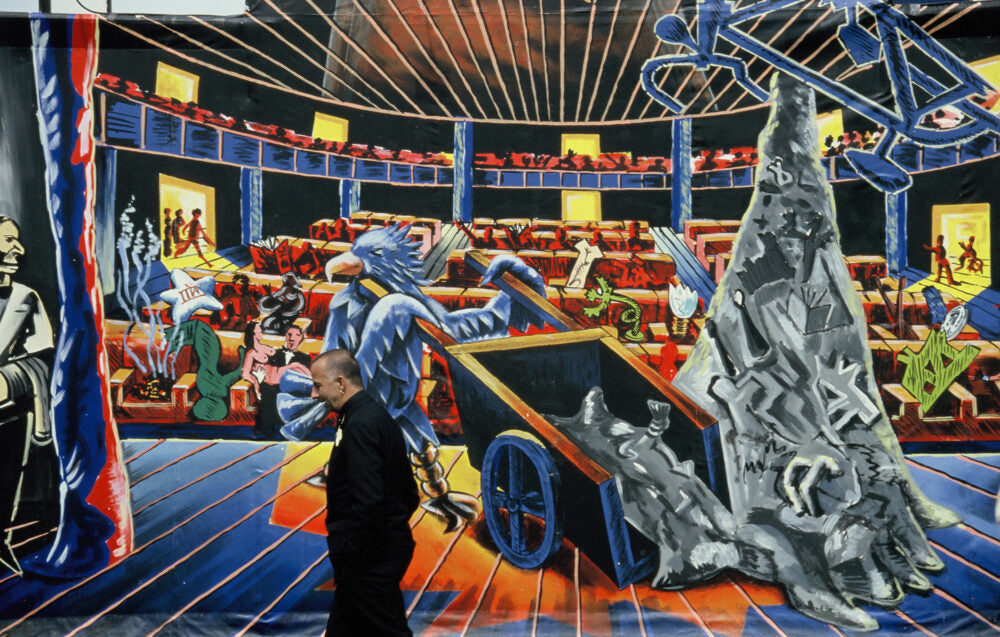
Jörg Immendorff, Shooting-gallery game with political imagery, exhibited 1987.
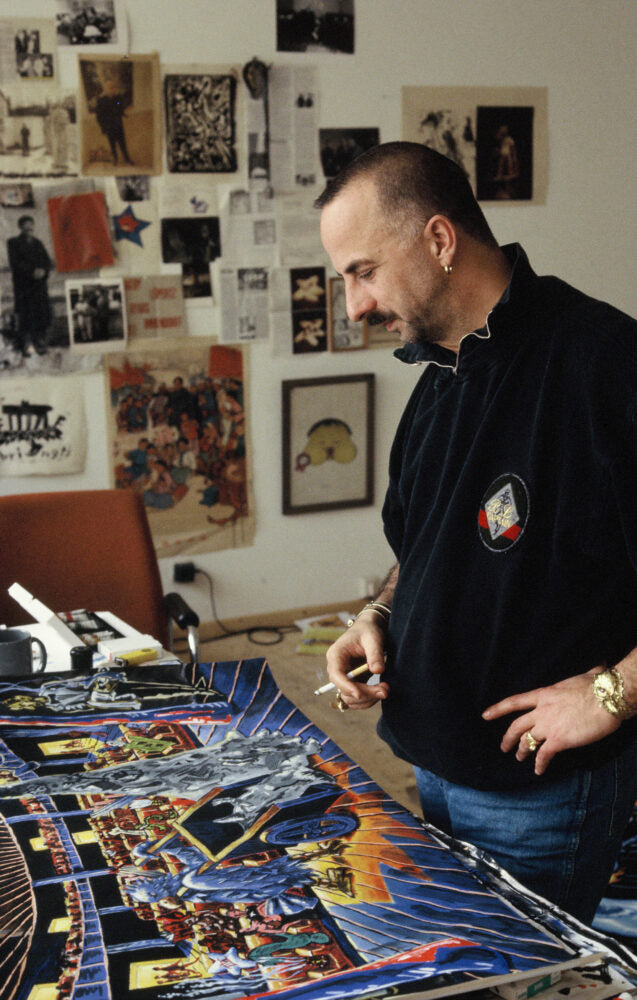
Jörg Immendorff, Shooting-gallery game with political imagery, exhibited 1987.
Immendorff began his renowned Café Deutschland series (1978-82) in the late 1970s: a series of 16 large-scale paintings influenced by Italian painter Renato Guttuso’s Caffè Greco (1976). Referencing the cabaret culture of prewar Berlin, these paintings use nightclubs as a staging ground for political and cultural scenes featuring figures as disparate as Adolf Hitler, Otto Dix, and Max Beckmann. Colorful, chaotic, and elaborately staged, they merge autobiography with social and political commentary to consider the division between East and West Germany in the decades following World War II. In addition to oil painting on canvas, Immendorff worked on stage sets and costumes for the Salzburg Festival and created a number of public sculptures.
Immendorff created flags, a poster, and a shooting gallery outfitted with outsize, nightmarish depictions of Germany’s recent past. In one of the paintings, a Reichsadler, or German Imperial Eagle (a symbol of national pride tainted by Nazi usage), pushes a wheelbarrow full of pallid bodies onto a cabaret stage. Hovering over the near-empty theater, a sign gesturing to the emptiness of German national identity reads “babel marke vaterland,” or “babel brand fatherland,” above a destroyed bicycle. Inside, visitors shot at cups in an act of annihilation echoing the wreckage of postwar Germany.
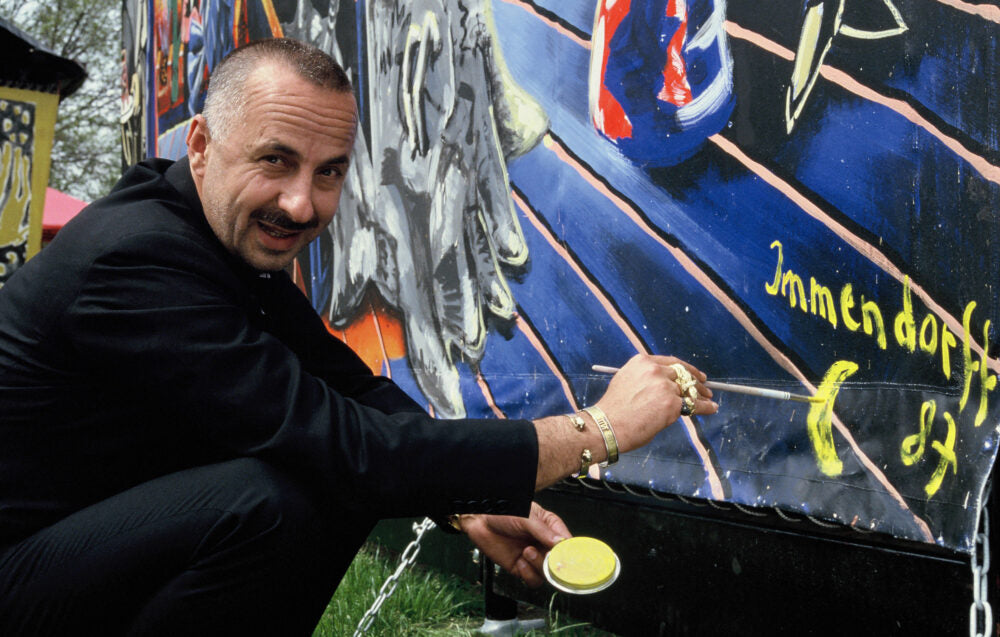
Fairground view: Jörg Immendorff, Shooting-gallery game with political imagery. Luna Luna, Hamburg, Germany, 1987.
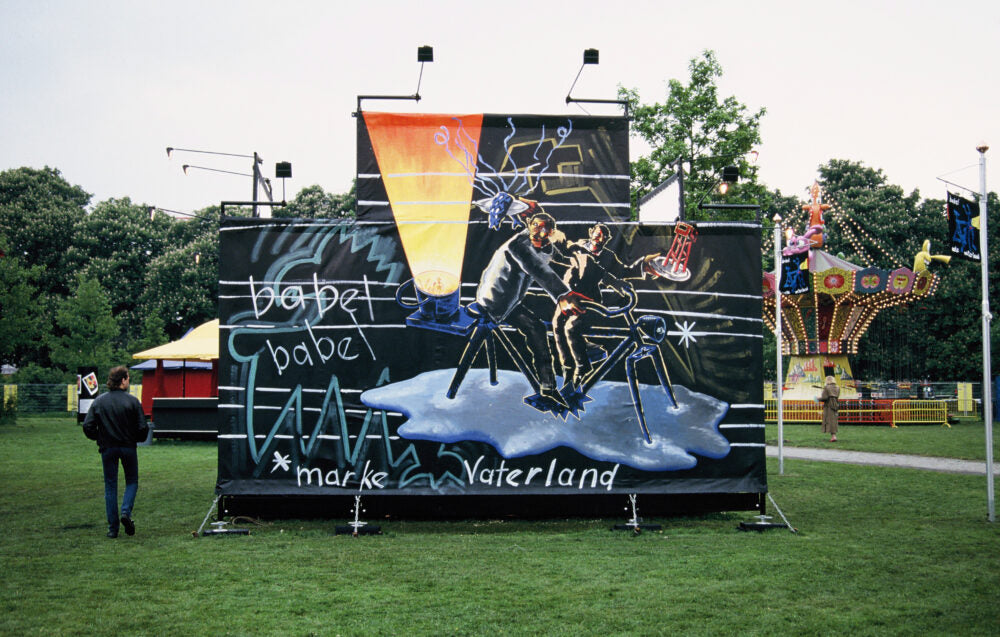
Fairground view: Jörg Immendorff, Shooting-gallery game with political imagery. Luna Luna, Hamburg, Germany, 1987.

